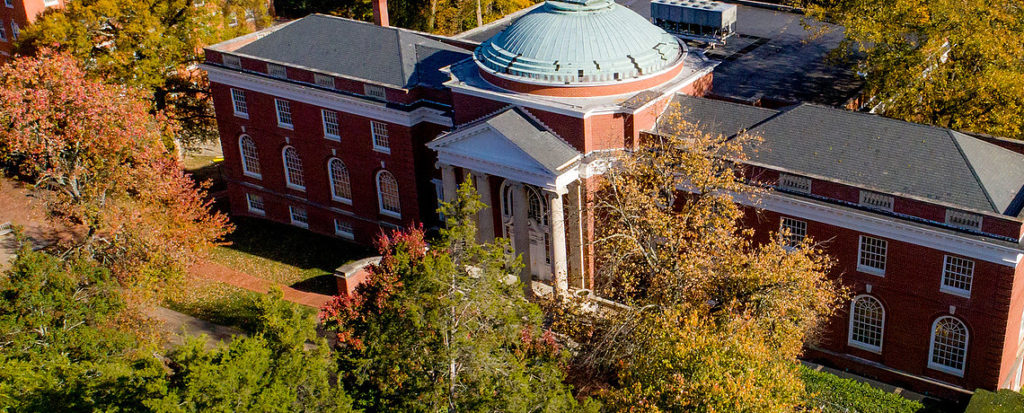The University of Mary Washington has landed on a list of top “green colleges” in the nation for the fourth year in a row. The ranking appears in the 2018 edition of The Princeton Review’s Guide to 399 Green Colleges.
The Princeton Review profiles colleges with the most exceptional commitments to sustainability based on their academic offerings and career preparation for students, campus policies, initiatives and activities. UMW was selected based on a 2017-2018 survey of more than 2,000 schools.

“We strongly recommend the University of Mary Washington and the other fine colleges in this guide to the many environmentally minded students who seek to study and live at green colleges,” said Robert Franek, The Princeton Review’s editor-in-chief.
College applicants and their parents are increasingly concerned about the environment and sustainability issues, Franek noted. Sixty-three percent of teens and their parents said having information about a college’s commitment to the environment would influence their decision to apply to or attend a school, according to a survey by The Princeton Review of more than 11,000.
In 2009, Mary Washington created the President’s Council on Sustainability. UMW currently features four LEED-certified buildings. Two more have received Gold certification, and the university has promised that all new construction and major renovations meet or exceed LEED silver standards, including the newest campus in Dahlgren, Virginia.
Features include motion sensor lights in all hallways, use of indigenous vegetation in landscaping and recycled building materials. The Dahlgren campus also features geothermal heating and cooling and a sedum-covered green roof that provides insulation and reduces rainwater runoff and storm water pollution.
UMW’s Campus Dining has also been named a “green restaurant” as part of the Virginia Green initiative. Eighteen percent of UMW’s food budget is spent on local and organic food. This semester, Campus Dining removed plastic straws from self-service areas and encouraged students, faculty and staff to reuse cups with a “Choose to Reuse” mug promotion that offers a discount on all beverages on campus.
Water conservation efforts include replacing more than 1,000 toilet fixtures plus sink faucets and shower heads that use significantly less water. Mary Washington also encourages students to participate in sustainability efforts from recycling to bike sharing. The university features a recycling program that handles oils, chemicals and large household appliances, as well as regular metal, plastic and paper.
In addition, the university has revised its investment policy to limit discretionary fossil fuel investments to below 4 percent. The university also competes annually in the international RecycleMania competition, teamed up with the City of Fredericksburg to educate the community about cigarette butt litter and works with the non-profit group Tree Fredericksburg to help replant trees in the city.
This past February, UMW was recognized by the Arbor Day Foundation as a 2017 Tree Campus USA for its commitment to effective urban forest management for the third consecutive year.
To see the full list of institutions included in the guide, visit https://www.princetonreview.com/college-rankings/green-guide.